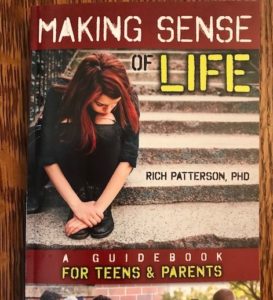
What Kids Need: Parents As Advisors

What Kids Need: Parents as Advisors
In part two of the series, What Kids Need, I would like to talk about Parents as Advisors. Being a parent is a bit like being a personal coach with your young person. If you hired a personal coach to help you with your life, you would want them to listen a lot, advise very little, and primarily allow you to figure out how to think and do things in your life by asking you questions. A good coach can help you to ask your questions, find your answers, and when the session ends, you thank them for really very little that they did for you. The same goes for being a good parent.
Sit with your child one on one as I wrote about in the previous post. Take time to listen to them, do not judge, do not advise. Just sit and listen to what they are thinking and what is worrying them. Ask them how things are going socially with their friends at school. Over time you will find a pattern for their thoughts, which will develop as they age. Their concerns should not be placed on the “don’t worry about that” train. They are concerned, or they wouldn’t be talking with you about it. Take time to puzzle out their relationships, their social concerns about how someone is treating them, or how to treat a problematic friend in their life. These are the fundamental building blocks for future adult relationships and represent the foundation of the skill-set for social competence with which many struggle.
Second, give them some space when you sense that things aren’t going right. At some point, you’ll know it as a parent; ask is anything bothering you? Over time kids will respond to this and welcome the opportunity for an adult to give them some insights and advice. Here is what I know: Realize that part of figuring out life is the struggle. The struggle is the bridge between difficulties and accomplishments, which they will use all of their life. Sensing when to step in and listen is a natural trait that parents have if they have spent any time with the young person. Suppose you have not had a chance to finish this developmental time with your child; start building trust with them. Trust is built on relationships, so start there and admit your mistakes in relationships that affect them.
Third, be clear that you want to hear what they say. Suspend any judgment, stories from your youth, or advice, do some uninterrupted listening. Learn to ask questions that build on their thoughts rather than ideas that end up giving them advice. For example, once they have told you of a social situation in which they are struggling, ask them, “What do you think you should do?” Then let them speak without adding your thoughts or advice. If they give you an idea that appears to need more thought or may have some faults with it, structure another question. For example, using the social situation, say, “Would you be OK if I said that to you?” or “What other ideas need to be added to that thought to make it more acceptable to the other person?” By structuring your questions in this way, you begin to add value to them as a young person. You help them build confidence that they have the answers within them, so tease them out.
Closely related to Parents as Advisors is this link Resilience in Kids: Doing Their Best – Dr. Rich Patterson (pattersonphd.com)
Advocacy in Action has a wonderful post here Part I: Chapter 2 – The Value of Parents as Advisors – Advocacy in Action (sepacguide.org)
I challenge you today to try sitting with your child and making a connection by listening. Try not advising, not judging, and not telling your stories. Just relax and listen and build that relationship. Once you have that going nicely, then begin your question strategies using the models above. Let me know how this works for you, and leave me a comment below.
Yours for Better Parenting,
Rich

Let’s Connect!